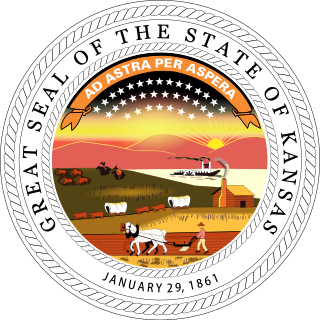The Federal Marriage Amendment (FMA), also referred to by proponents as the Marriage Protection Amendment, was a proposed amendment to the United States Constitution that would legally define marriage as a union of one man and one woman. The FMA would also prevent judicial extension of marriage rights to same-sex or other unmarried homosexual couples. An amendment to the U.S. Constitution requires the support of two thirds of each house of Congress and ratification by three fourths of the states. The last Congressional vote on the proposed amendment occurred in the House of Representatives on July 18, 2006, when the motion failed 236 to 187, falling short of the 290 votes required for passage in that body. The Senate has only voted on cloture motions with regard to the proposed amendment, the last of which was on June 7, 2006, when the motion failed 49 to 48, falling short of the 60 votes required to allow the Senate to proceed to consideration of the proposal and the 67 votes required to send the proposed amendment to the states for ratification. President Bush endorsed this proposal and made it part of his campaign during the 2004 and 2006 election cycles.

Prior to the Supreme Court's decision in Obergefell v. Hodges (2015), U.S. state constitutional amendments banning same-sex unions of several different types passed, banning legal recognition of same-sex unions in U.S. state constitutions, referred to by proponents as "defense of marriage amendments" or "marriage protection amendments." These state amendments are different from the proposed Federal Marriage Amendment, which would ban same-sex marriage in every U.S. state, and Section 2 of the Defense of Marriage Act, more commonly known as DOMA, which allowed the states not to recognize same-sex marriages from other states. The amendments define marriage as a union between one man and one woman and prevent civil unions or same-sex marriages from being legalized, though some of the amendments bar only the latter. The Obergefell decision in June 2015 invalidated these state constitutional amendments insofar as they prevented same-sex couples from marrying, even though the actual text of these amendments remain written into the state constitutions.

Arizona Proposition 107 was a proposed same-sex marriage ban, put before voters by ballot initiative in the 2006 General Election. If passed, it would have prohibited the state of Arizona from recognizing same-sex marriages or civil unions. The state already had a statute defining marriage as the union of a man and a woman and prohibiting the recognition of same-sex marriages performed elsewhere.

The Tennessee Marriage Protection Amendment, also known as Tennessee Amendment 1 of 2006, is a state constitutional amendment banning same-sex unions. The referendum was approved by 81% of voters. It specified that only a marriage between a man and a woman could be legally recognized in the state of Tennessee. This prohibited same-sex marriages within the state, reinforcing previously existing statutes to the same effect until it was overturned by the Obergefell v. Hodges ruling in June 2015.

Amendment 1 of 2004 is an amendment to the Mississippi Constitution that prohibited same-sex marriages from being conducted or recognized in Mississippi. The Amendment passed a public referendum on November 2, 2004 with 86% of voters supporting and 14% opposing.

Initiative 96 of 2004 is a ballot initiative that amended the Montana Constitution to prevent same-sex marriages from being conducted or recognized in Montana. The Initiative passed via public referendum on November 2, 2004 with 67% of voters supporting and 33% opposing.

Wisconsin Referendum 1 of 2006 was a referendum on an amendment to the Wisconsin Constitution that would invalidate same-sex marriages or any substantially similar legal status. The referendum was approved by 59% of voters during the general elections in November 2006. All counties in the state voted for the amendment except Dane County, which opposed it. The constitutional amendment created by Referendum 1 has been effectively nullified since June 26, 2015, when the United States Supreme Court ruled in Obergefell v. Hodges that state-level bans on same-sex marriage are unconstitutional.

South Carolina Amendment 1 of 2006 amended the South Carolina Constitution to make it unconstitutional for the U.S. state to recognize or perform same-sex marriages or civil unions. The referendum was approved by 78% of voters. Unlike the other sixteen such state amendments, South Carolina's explicitly disavows any effort to prevent private contracts between same-sex partners from being recognized—Virginia being the only state to do so.

Proposition 2 was a referendum for a state constitutional amendment placed on the ballot by the Texas legislature and approved by the voters at the November 8, 2005 general election. The measure added a new provision to the Texas Constitution, Article 1, Section 32, which provides that "Marriage in this state shall consist only of the union of one man and one woman", and "This state or a political subdivision of this state may not create or recognize any legal status identical or similar to marriage." Texas thus became the nineteenth US state to adopt constitutional amendment banning same-sex marriage. It was the most populous state to adopt a constitutional ban on same-sex marriage until California passed its ban in November 2008.

Kansas Proposed Amendment 1, which was put before voters on April 5, 2005, is an amendment to the Kansas Constitution that makes it unconstitutional for the state to recognize or perform same-sex marriages or civil unions. The referendum was approved by 70% of the voters.

Constitutional Amendment 3 of 2004, is an amendment to the Arkansas Constitution that makes it unconstitutional for the state to recognize or perform same-sex marriages or civil unions. The referendum was approved by 75% of the voters.

Georgia Constitutional Amendment 1 of 2004, is an amendment to the Georgia Constitution that previously made it unconstitutional for the state to recognize or perform same-sex marriages or civil unions. The referendum was approved by 76% of the voters.

Kentucky Constitutional Amendment 1 of 2004, is an amendment to the Kentucky Constitution that made it unconstitutional for the state to recognize or perform same-sex marriages or civil unions. The referendum was approved by 75% of the voters.

Louisiana Constitutional Amendment 1 of 2004, is an amendment to the Louisiana Constitution that makes it unconstitutional for the state to recognize or perform same-sex marriages or civil unions. The referendum was approved by 78% of the voters.

Michigan Proposal 04-2 of 2004, is an amendment to the Michigan Constitution that made it unconstitutional for the state to recognize or perform same-sex marriages or civil unions. The referendum was approved by 59% of the voters. The amendment faced multiple legal challenges and was finally overturned in Obergefell v. Hodges by the U.S. Supreme Court.

North Dakota Constitutional Measure 1 of 2004, is an amendment to the North Dakota Constitution that makes it unconstitutional for the state to recognize or perform same-sex marriages or civil unions. The referendum was approved by 73% of the voters.

Oklahoma Question 711 of 2004, was an amendment to the Oklahoma Constitution that defined marriage as the union of a man and a woman, thus rendering recognition or performance of same-sex marriages or civil unions null within the state prior to its being ruled unconstitutional. The referendum was approved by 76 percent of the voters.

The Marshall-Newman Amendment, also referred to as the Virginia Marriage Amendment, is an amendment to the Constitution of Virginia that defines marriage as solely between one man and one woman and bans recognition of any legal status "approximat[ing] the design, qualities, significance, or effects of marriage". The amendment was ratified by 57% of the voters on November 7, 2006. It became part of the state Constitution as Section 15-A of Article 1. In 2014, the amendment was ruled unconstitutional in Bostic v. Schaefer.

Arizona Proposition 102 was an amendment to the constitution of the state of Arizona adopted by a ballot measure held in 2008. It added Article 30 of the Arizona Constitution, which says: "Only a union of one man and one woman shall be valid or recognized as a marriage in this state." The amendment added a constitutional ban on same-sex marriage to existing statutory bans in place since 1996. In October 2014, Article 30 of the Arizona Constitution was struck down as unconstitutional in the United States District Court for the District of Arizona, and is no longer enforced by the state of Arizona, which now allows and recognizes same-sex marriages.

The 2006 Virginia State Elections took place on Election Day, November 7, 2006, the same day as the U.S. House and the U.S. Senate elections in the state. The only statewide elections on the ballot were three constitutional referendums to amend the Virginia State Constitution. Because Virginia state elections are held on off-years, no statewide officers or state legislative elections were held. All referendums were referred to the voters by the Virginia General Assembly.


















